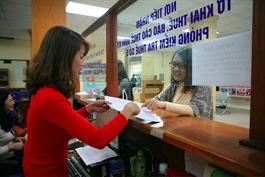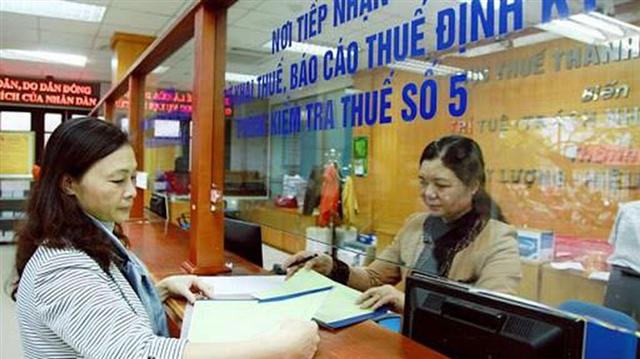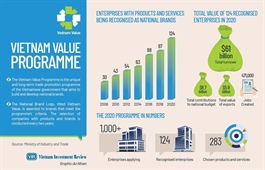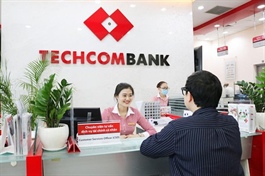Customer account sharing with tax agencies not new
Customer account sharing with tax agencies not new
In recent years, e-commerce activities have increased and online business services have been thriving, causing various problems for the tax departments who are facing difficulty in tracking tax evaders. For this purpose, the Government has issued Decree 126/2020/ND-CP as an essential tool to regulate e-commerce activities, control tax payment, and combat loss of revenue in the current scenario of a declining economy.
Illustrative photo.
|
Saigon Investment spoke with Mr. DANG NGOC MINH, Deputy Director of the General Department of Taxation under the Ministry of Finance, to further understand this issue.
JOURNALIST: - Sir, will Decree 126/2020/ND-CP allow tax authorities to freely look into the details of a personal bank account without the permission of the account holder?
Mr. DANG NGOC MINH: - First of all, I want to stress that the regulation allowing commercial banks to provide customer account information to tax authorities or other state agencies is not a new regulation. Currently, the Government has new regulations on the obligation of commercial banks to provide information to tax authorities. Since 2016, commercial banks have been proposing to the State Bank of Vietnam to sign an agreement on the exchange of account information of organizations and individuals who are now Americans or residing in the USA.
This means that since 2016, commercial banks have been able to track and provide information about personal accounts and businesses in the US, to tax authorities. Therefore, the Government's request for commercial banks to provide information to domestic tax authorities does not create new difficulties for banks.
- Sir, will the tax authorities control all individual accounts and accounts of organizations that open in commercial banks?
- In the short term, asking commercial banks to provide information on a taxpayer's bank account will not be done widely. The General Department of Taxation will specify certain groups of subjects for request of information on bank accounts because it is difficult for tax authorities to handle so much information. Banks also do not have enough resources to control and supervise all taxpayers. Instead, we will identify specific groups based on transaction tracking. For example, by primarily targeting a group of taxpayers with regular e-commerce transactions and cross-border transactions, the tax authorities can collect a complete database.
In fact, for many years, it has been seen that the tax administration and tax collection for e-commerce business activities has met with many difficulties. Especially when more and more individuals receive income upto billions of dong from businesses through platforms such as Amazon, Google, and YouTube, then tax authorities have difficulty in recovering from this amount. Even the collection does not properly reflect the actual scale of crossborder e-commerce transactions. In 2018, we only earned around VND 700 bn, in 2019 about VND 800 bn, and from the beginning of 2020 until now we have recovered only about VND 1,000 bn, which is all a small sum compared to actual figures. Therefore, when Decree 126 is finally implemented, it will help tax authorities to track down bank transactions and effectively manage tax evaders.
- Sir, will customer confidentiality be guaranteed when providing customer account information to the tax agency, or will there be an overlap when the taxpayer has to pay tax twice, as in stock transactions for example?
- Firstly, I affirm that all taxpayer information will be strictly confidential within the tax agency. This issue has been very well implemented by the tax authorities over the years. Currently, the tax authorities are only required to provide accounts for specific items and do not require commercial banks to provide entire account details or payment balance of all customers. The request for commercial banks to provide account information and transactions is mainly for inspection and analysis. In coming time, the General Department of Taxation will coordinate with the State Bank of Vietnam and credit institutions to promulgate regulations and processes for providing customer payment account data.
Secondly, the taxpayer will not pay tax twice as the collection of tax will be recorded clearly on data of a bank account, so there can be no overlap. Also, today securities investors are usually paid by shares, hence there is a lot more clarity. During a transaction, the individual involved will have the option and responsibility to declare and pay the tax in full, since these are two different taxes. Regulations for dividend payment do not require 5% tax immediately, but only when the tax amount is sold then the tax agency will collect.
- Sir, is this method of tracking tax evaders consistent with international practices?
- I affirm that this method of monitoring bank accounts to tackle tax evaders is very much consistent with international practices and many countries have already implemented this method. Previously we have heard stories of the confidentiality of Swiss banks, but recently, on the request of many governments, Swiss banks have been providing information to state agencies. Therefore, the fact that our banks provide information to domestic tax authorities according to Decree 126 is consistent with international practices. This is also the responsibility of the banking industry and banks cannot cite confidentiality as a reason for not disclosing customer information to appropriate tax authorities if required by the government of a country.
- Thank you very much.

























